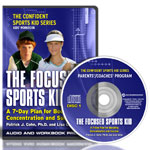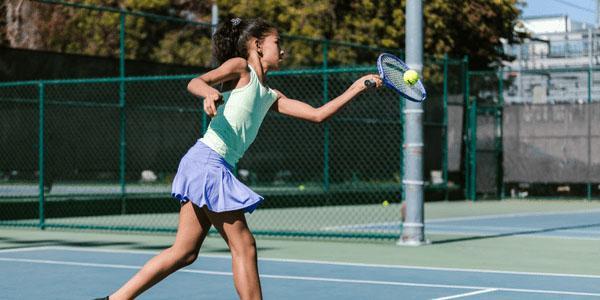Sports Kids And a Zone Focus
Sports kids often focus on the wrong things when they’re playing—the score, their last mistake, or worries about today’s homework assignment. This makes it harder for them to experience what we call a “zone focus.”
We want sports kids to achieve a “zone focus” because it helps boost their confidence, enjoyment and performance. To do this, they need to learn how to play “in the moment” and focus on what’s happening right now.
Adults can help kids learn how to focus on what will ultimately allow them to perform better. One way they can do this is by helping them develop a pre-game routine.
This is an important tool for helping kids leave their daily hassles behind and transition to the “athlete’s role.” It helps kids sharpen their focus and concentrate on their practice or performance.
A pre-game routine involves five steps. Kids need to:
- Park their distractions
- Shoot down doubts
- Set mini-goals
- Rehearse their performance
- Focus on execution
Today, let’s talk a little about parking distractions.
First, when creating a pre-game routine, kids need to identify common distractions that affect them when they’re practicing or performing.
Parents can be very helpful here.
What generally distracts your sports kids?
Do they worry about relationships with friends, dwell on mistakes or look forward to social events, for example. Help kids make a list of their common distractions.
Next, help young athletes understand what they can do to help leave these life hassles behind during performances.
The goal is to commit to practice or competition for the time being and not let these things bother them. Help them come up with phrases that allow them to overcome their distractions.
They might tell themselves, “I can’t change my bad grade and worrying about it will hurt my game.” Or, “I can’t control what my friend thinks of me, but I can control how I feel and focus.”
Again, the idea is to help kids identify what pulls them off task.
Understanding their common distractions will help them be more aware of them when they do come up. Then, they need to pull out their distraction-busting phrases to get the worries, fears or ideas out of their heads.
Related Articles on Youth Sports:
- Helping Kids Find the All-Elusive Zone
- How to Help Sports Kids Stay Focused During Games
- Do Your Sports Kids Lose Focus When Performing?
*Subscribe to The Sports Psychology Podcast on iTunes
*Subscribe to The Sports Psychology Podcast on Spotify
Help Your Young Athletes Improve Focus In Sports!

Are your young athletes easily distracted by people shouting on the sidelines? Do they obsess over their mistakes? Do they worry about what people think of them?
These issues will cause their concentration and performance to suffer!The Focused Sports Kid helps kids overcome distractions that can hurt their performance in sports.
The Focused Sports Kid program is actually two programs: one for sports parents/coaches that provides mental game tips especially designed for parents and coaches, and for young athletes, ages 8 to 12, that will walk them through 7 simple lessons in mental focus in sports.


Great topic and overall direction you are taking your blog.
My son plays on a competitive soccer team in Arizona and is a very good player. However, like many of the kids he has an on/off switch. When he is “on” in the game the boy is outstanding and one of the best on the field but when the switch is “off” he seems to be in jogging mode.
I attempt to motivate him but the switch seems really random. What are things that a parent can do to motivate their yound athlete without being overbearing?
This is very common for young athletes. Don’t expect that they will be on all the time. But you can help by making sure they are physically ready to focus their best. High intensity usually translates into better focus. Check out Flow: The Psychology of Optimal Experience and the flow channel the author talks about in his book. Also, you want kids to be self-motivated instead of needing to motivate them.
It certainly does. You see less and less kids nowadays playing outside, they are all cooped up in their little rooms playing a gameboy or something which in result will make them weak and not able to handle many physical challenges. Not much we can do because of the rapid evolution of technology.
Makes you kind of miss the old days, doesn’t it? When everyone can’t wait to go outside and play. I sure do.